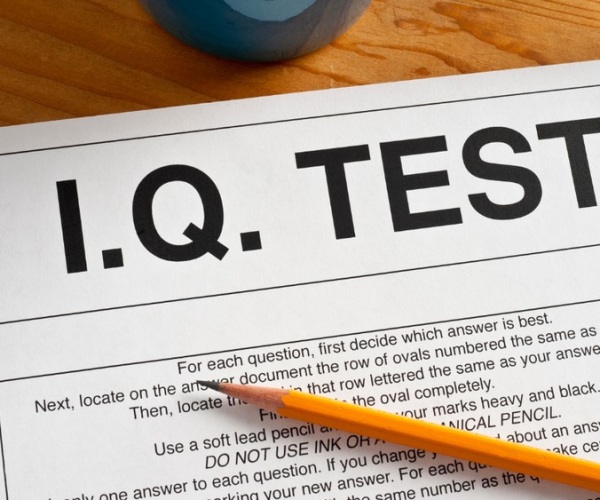What is IQ?

IQ stands for “Intelligence Quotient” and is a measure of human intelligence obtained through standardised tests.
There are several areas that are assessed when exploring IQ;
If an IQ assessment is completed it will assess:
- The Verbal ComprehensionIndex measures a person’s ability to access and apply acquired word knowledge. Specifically, this score reflects one’s ability to verbalise meaningful concepts, think about verbal information, and express oneself using words.
- The Visual SpatialIndex measures a person’s ability to evaluate visual details and understand visual spatial relationships to construct geometric designs from a model. This skill requires visual-spatial reasoning, integration and synthesis of part-whole relationships, attentiveness to visual detail, and sometimes using hand-eye coordination, and working quickly and efficiently with visual information.
- The Fluid ReasoningIndex measures a person’s ability to detect the underlying conceptual relationship among visual objects and use reasoning to identify and apply rules. Identification and application of conceptual relationships requires inductive and quantitative reasoning, broad visual intelligence, simultaneous processing, and abstract thinking.
- TheWorking Memory Index measures a person’s ability to register, maintain, and manipulate visual and auditory information in conscious awareness. These tasks measure one’s skills in attention, concentration, and mental reasoning as well as visual and auditory discrimination. This skill is closely related to learning and achievement.
- The Processing SpeedIndex measures a person’s speed and accuracy of visual identification, decision making, and decision implementation. Performance is related to visual scanning, visual discrimination, short-term visual memory, visuomotor coordination, and concentration. This skill may be important to a person’s development in reading, and ability to think quickly in general.
- The Full-Scale IQscore is derived from the five areas of cognitive ability; Verbal Comprehension, Visual Spatial, Fluid Reasoning, Working Memory, and Processing Speed indexes. The Full-Scale score is one way to view a person’s general intellectual functioning.
Each of these areas helps us to understand a person’s particular profile of strengths and weaknesses. This information can be used to support accomodations at school and assist with learning. Measures of IQ may also be used to assess if someone has an intellectual disability or is gifted.
Another way to assess IQ is exploring adaptive behaviours and this can often be completed alongside an IQ assessment.
People with learning disabilities, long term psychosocial difficulties, mental health difficulties, and other challenges benefit from practicing adaptive behaviour skills. Adaptive behaviour refers to the age-appropriate behaviours that people with and without learning disabilities need to live independently and to function well in daily life.
Adaptive behaviours can be particularly useful for evaluating those with developmental delays, autism spectrum disorder, intellectual disability, learning disabilities, neuropsychological disorders, and sensory or physical impairments.
If you would like more information about IQ testing or you would like an assessment completed, please contact us on 6381 0071.